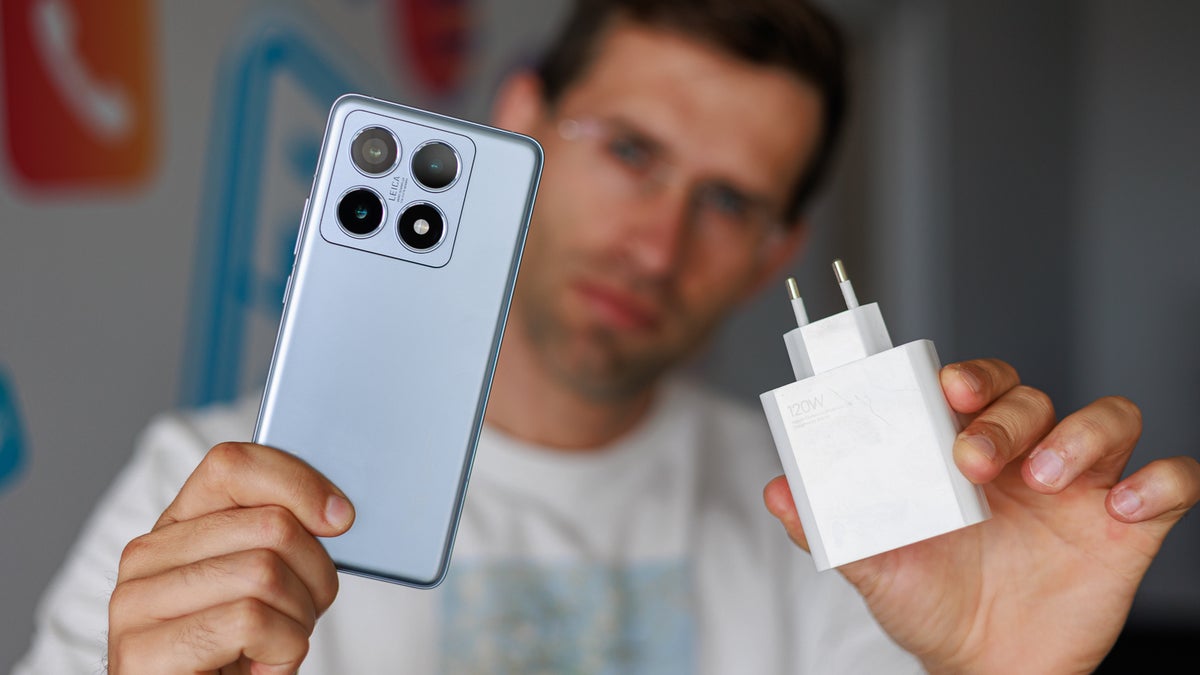Slow charging is holding us back: A call to Apple, Samsung, and Google
This article may contain personal views and opinion from the author.

Remember when upgrading your phone meant getting a device that was significantly faster and better in every way?
So why, in 2024, do I still have to wait over an hour and a half for a full charge, just as long as I did a decade ago? Back then, it took slightly less than two hours to power up my Galaxy S4 completely. Now, with my fairly recent iPhone, the story hasn’t changed much.
Apple, Samsung, and Google seem notoriously slow to adapt to the new times, especially when it comes to charging. Once, their flagships were met with a 'Hell, yeah!' Nowadays, it's usually an 'Oh, no!'
Most other manufacturers, especially the multitude of China-based manufacturers have solved the charging "problem" a long time ago. These brands are not just playing catch-up; they’re setting the pace for the industry.
Most Android flagships coming from OnePlus, Oppo, Xiaomi, or Huawei these days supports extremely fast wired charging. Some start at 100W, but often way more than that. Vivo has a few devices that can get charged at 200W. Xiaomi's Redmi has unveiled a 300W charging solution, while Realme, a subsidiary of Oppo, has recently announced plans for a blazing-fast 320W charging.
Extraordinary.
Just the other day, for example, the Xiaomi 14T Pro walked into our office for a full review, and one of the first benchmarks that we ran was the wired charging. The latest Xiaomi flagship supports 120W wired charge and 50W wireless charging, pretty tame in comparison with the numbers shared just a few sentences above, but still way ahead of your regular Pixel, iPhone, or Galaxy.
Well, we got the Xiaomi 14T Pro fully juiced up from 0% to 100% in just 23 minutes (Xiaomi advertises 19 minutes), which is an exceptionally quick result!
The fastest-charging phones aren't the usual suspects
It is, however, not a record in our books. In fact, we have three Android phones tied for the first place in our charging benchmarks, all juicing up in 23 minutes: this here Xiaomi 14T Pro, the Motorola Edge 50 Pro, and the OnePlus 10T.
The second place is also contested: both the Xiaomi Note 12 Pro+ and the Motorola Edge 30 Ultra charge in 24 minutes as per our tests. At the third spot, we have the Xiaomi Redmi Note 13 Pro+ 5G, scoring 25 minutes in the 0% to 100% exercise. There's a lot more potent Android champs that get fully charged below 30 minutes––check the PhoneArena Battery Test Results page.
Notice anything? Yep, no Samsung, no Apple, no Google.
In fact, the fastest charging Samsung phone is near the middle of our table––the Galaxy S20 Ultra charges in 59 minutes, which sounds slow in comparison with the mind-bogglingly fast charging times that battle it out at the top of the rankings.
Google is also an "offender"––its fastest-charging device is the Pixel 9 Pro XL, which gets fully juiced up in one hour and 21 minutes. Older Pixels are even slower.
With Apple, the fastest-charging phone we've ever benchmarked is the iPhone 14, which gets fully charged in, wait for it, one hour and 28 minutes, a whole eternity. In fact, you can fully juice up the three fastest charging phones back to back one after the other and still have more than twenty minutes left for this particular iPhone to reach 100%. And that's the best-performing one––all other iPhones take even longer.
Why have we normalized slow charging?
It's not us, the regular Joe's and plain Jane's, that have caved in and "accepted" that Samsung, Google, and Apple phones simply refuse to let their devices charge truly fast and routinely lose the race to just about any Chinese smartphone out there in terms of fast charging.
And indeed: the Galaxy S24 Ultra charges at 45W, the Pixel 9 Pro XL can receive up to 37W with some specific hardware, while the latest iPhones can jump to around 40W in some specific circumstances.
The most often cited and widely accepted reason for the slow charging is battery health. Fast charging at high wattage generates heat, and heat is the natural predator of your phone's battery. This thermal stress leads to faster degradation of the battery’s internal components, reducing its capacity to hold a charge and shortening its lifespan.
Manufacturers have tried to fix that. OnePlus, for example, addressed heat accumulation during fast charging with its Dash and Warp Charging solutions. Both of those shifted more of the heat management to the charger instead of the phone.
This was achieved thanks to the use of a custom wall adapter and cable, which enabled higher current delivery with relatively lower voltage in comparison with standard fast charging. This method showcased that fast charging and battery preservation don’t have to be mutually exclusive, as long as heat is handled effectively.
Or, as user buttersauce said on Reddit six years ago, "Most quick charges are like filling a bucket faster by increasing water pressure from the hose, while Dash Charge uses a bigger hose". What an apt description!
OnePlus' Dash charging evolved to Warp charging, and is still around, super quick and as awesome as ever. It is, however, by no means the only capable fast-charging solution debuted by Android manufacturers.
Let's stop settling for less, it's time to demand more
See, phones are appliances. We shouldn't put them on a pedestal and worship them. We should use them without letting them use us. They should fit within our busy lifestyles, not the other way around.
Pampering your phone's battery isn't going to make it last forever. Enabling the charge limit on your iPhone to 80% will potentially safeguard the health of your battery a little, but you will also be axing your potential battery life, which is a bad compromise.
I say, let us, the users, choose whether we prioritize fast charging or battery health. Make the phone of tomorrow capable of charging fast if necessary, and leave it to us to decide what's more important.
Apple, make an iPhone with 70W charging and see demand for your 70W MacBook charger skyrocket. Let your iPhones be chargeable in under 40 minutes, and you will receive back some of your lost street-cred.
Samsung… Just, just go and copy that strategy like we know you would.
Google, be courageous for once, your Pixels are already top-tier phones, beat your biggest rivals by doubling the charging speeds for the commemorative Pixel 10 lineup.
We need to stop normalizing slow charging. The technology is here, and the choice should be ours. Let’s demand more from our devices—they’re supposed to serve us, not hold us back.
Apple, Samsung, Google: It’s time to catch up.
Follow us on Google News













Things that are NOT allowed:
To help keep our community safe and free from spam, we apply temporary limits to newly created accounts: